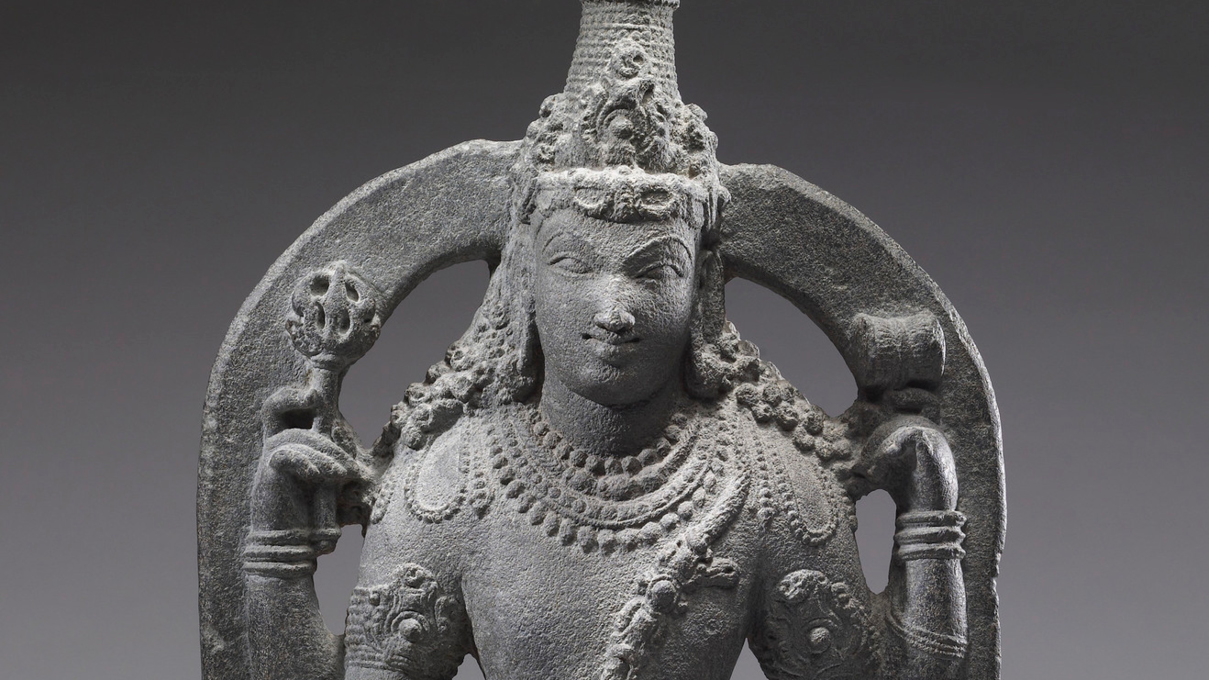Annual Ford Lecture: Shiva, the Mystic Lord and Dancing Liberator

Location: Graham Auditorium
Registration is required.
Shiva, also known as Mahadeva or “Great God,” has been conceived as inhabiting wide-ranging forms. The many different manifestations in which he appears and is worshiped include as a simple, pillar-like form (“Linga”); an ascetic; and a member of a “holy family” grouping. In this lecture, German scholar Corinna Wessels-Mevissen, PhD, will discuss objects visualizing Shiva in his multiple modes, including a rare 10th-century stone sculpture that depicts him as a supreme but humble ruler, along with other works in the Walters collection.
This lecture is supported by a fund established by John and Berthe Ford.
ASL interpretation will be provided at this program.
2 p.m.: Introductions
2:05 p.m.: Lecture
2:45 p.m.: Q&A Session
3 p.m.: Reception in the Walters Cafe
Available resources: Accessible Seating, Assistive Listening Devices, ASL Interpretation, Sensory Kits
Accessibility resources and accommodations are available for programs and events. Please email [email protected] with questions and requests. We will make every effort to provide accommodations. Visit our accessibility web page for more information.
About the Guest Speaker
Corinna Wessels-Mevissen, PhD, is an Associated Researcher at the University of Bonn, Germany. Developing a keen interest in Indian culture early on, she focused her studies on Indian archaeology and languages, as well as South Asian art history. Her work assignments include Curator of South and Southeast Asian Art at the Asian Art Museum, Berlin, and Research Fellow at Cologne University. On various occasions, she lectured and taught university courses. Her investigations, augmented by extensive field trips, resulted in a number of academic articles and other publications, with her specific fields including iconographic, typological, stylistic, and interpretational analyses of South Asian sculpture.
Image: Shiva, Indian (Artist), 10th century CE. Gift of John and Berthe Ford, 2004.


